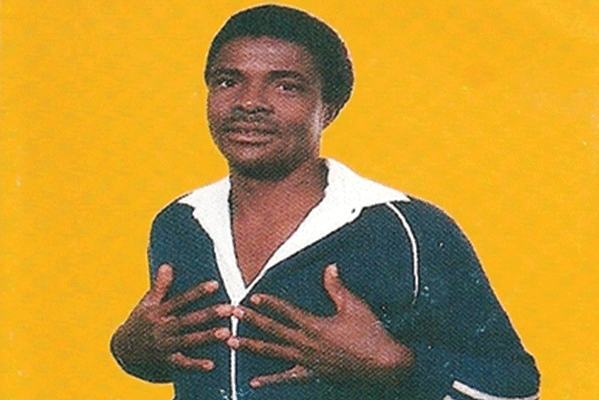
Last Sunday marked 26 years after the passing on of legendary musician, James Mbatete Chimombe. He died at the peak of his career in 1990. On November 3, 2016, there will be his commemoration in Harare, where his daughter, Tendai, is set to perform.
BY DANIEL NGWIRA

Chimombe left behind a chart-topping album, Jemedza, released posthumously. Jemedza is a reference to his ancestral dwellings in Chivhu, where he was born. It is a sacred mountain. The song was a revelation that Jimmy smelt his death well before it visited.
In the song, he requests the ancestors to accompany him on the journey, as Jemedza, steep and thorny, is filled with caves just as lions roam in Cheshumba, while Gandachibvuva is sacred so one needs spiritual accompaniment.
Chimombe sings about the sacredness of places like Mudzimu Ndateura. This song symbolises the pain he went through to his final destination. Here was an icon trying to tell the world that when death knocks on your door, you can’t win the fight.
Before his death, it was once rumoured that he had died and he had to go on radio to prove it was a lie. He jokingly said: “Chimombe will not die.” Cain Chikosha, who received him at the entrance to the then Radio 2 (now Radio Zimbabwe) studio, would also, ironically, receive Tendai Chimombe when I visited the studios to introduce her in 2014.
It was the same year, which the Chimombe family organised a commemoration event for Jimmy at Warren Park Tavern. But I believed the legendary musician deserves more recognition given the contribution he made to the music industry.
We have had two of Chimombe’s children — Tendai and her late brother, Freddy — trying to revive Jimmy’s legacy. Freddy did an album titled Nherera, with the help of the late Prince Tendai Mupfurutsa.
- Chamisa under fire over US$120K donation
- Mavhunga puts DeMbare into Chibuku quarterfinals
- Pension funds bet on Cabora Bassa oilfields
- Councils defy govt fire tender directive
Keep Reading
In 2014, I felt honoured to get a slot to play and give a speech on the day to commemorate a legend. It was a modest event, which marked a milestone after the fall of the Chigwaya hitmaker.
For music to have meaning, we need our music heroes to be honoured and thegovernment should help in this regard.
Music is part of life. Jimmy played music that could easily fit into all of life’s episodes. The Bindura star travelled a long music journey, which included working with Thomas Mapfumo at Acid Band, Safirio Madzikatire at Pop Settlers, Real Sounds of Africa, OK Success and Ocean City Band.
At the time of his death, James had formed Huchi Band after he was sacked from The Ocean City Band for alleged misconduct. That marked the fall of The Ocean City Band. When Biggie Tembo joined the band there were celebrations, as people thought, with the meeting of two stars in the band fireworks were to be expected. Reality was James had left, while Biggie (real name Mhosva Marasha) was looking for temporary shelter to record his Out of Africa album.
To prove his prowess, whichever band he deserted, as the lead singer, did not last the distance. While OK Success and Ocean City Band tried to continue from where James had left, they found themselves doing cover versions, as James owned the copyright to his music. Besides, they did not have anyone as talented and charismatic as Jimmy.
Jimmy belonged to a generation of legends, who shaped the music industry in Zimbabwe including Oliver “Tuku” Mtukudzi, Thomas Mapfumo, Marshal Munhumumwe and Safirio Madzikatire.
Today, we take collaborations for granted, yet back in the day they were not as common. The turning point regarding collaborations in Zimbabwe was when James Chimombe teamed up with mega star, Tuku for the Ini Newe duet. While it was not the first collaboration, it was the hallmark of success by two notable musicians of our time. The song was cut on a maxi single. Many of today’s fans cannot relate to a seven-single or a maxi single.
Not only did James spend his entire life singing music, but also taught it, as he was actively involved in Ethnomusicology.
He was also a director of the Zimbabwe Musicians Rights Association, which ensures composers are paid their royalties and that their works are protected by enforcing copyright laws.
Although giving Chimombe recognition can be done by anyone, the government has an obligation to do so, perhaps open a musicians’ library and museum in his name. This should include a collection of all his works and those by other notable musicians.
The museum could help preserve our music and culture, as a nation, while at the same time earning some income for the musicians or, in case of the deceased, their families.
Statues of the musicians could also be part of that, even notable clothes they were known to wear. Tendai still has some clothes that Jimmy wore. This is iconic.
As a nation, we need to know the road we travelled and celebrate our success. This goes beyond an award, which is private.
Daniel Ngwira is a musician and the spokesman for the Zimbabwe Musicians Union. He can be contacted on +26773113161 or [email protected]











